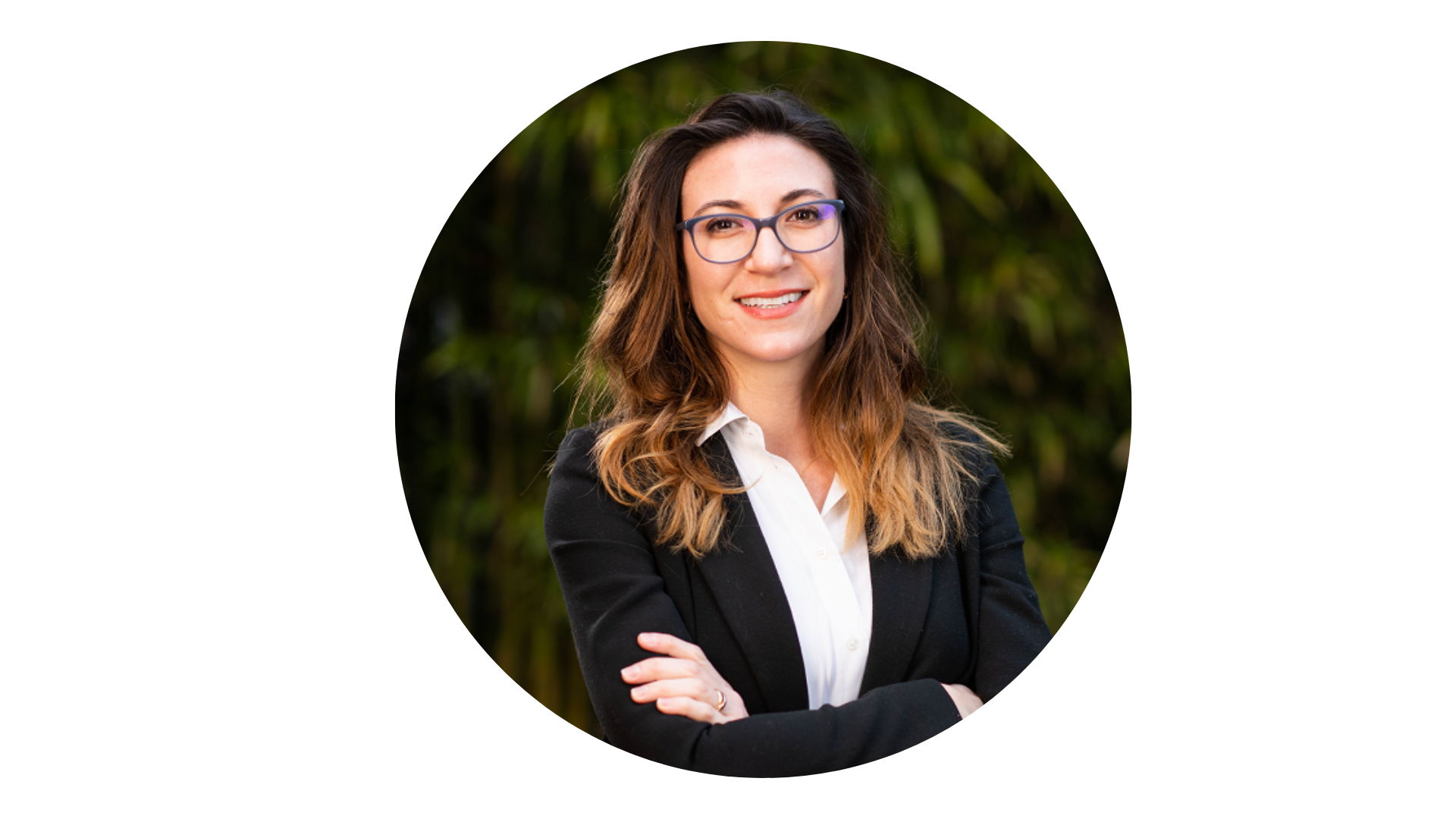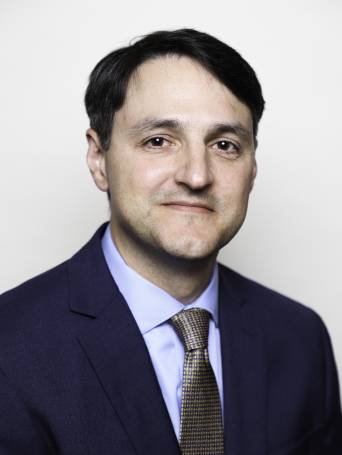Social Impact, Innovation, and Investment (SI3) Specialization
Prepare to lead and innovate for lasting social impact.
Program Overview
Become a driver of change across the private, nonprofit, and public sectors with an MPA-PNP degree specializing in Social Impact, Innovation, and Investment (SI3).
By mastering the language and tools of both business and policy, you'll gain the skills to innovate in products, services, delivery systems, enterprises, and investment strategies, all aimed at addressing significant domestic and global challenges. You’ll also develop the expertise to assess and measure the social impact of those innovations. Key areas of study include ideation, entrepreneurship, impact investing and social finance, giving you a solid foundation in the field. Graduates are well-prepared to thrive in the rapidly expanding social innovation sector, pursuing roles in which balancing financial returns with social impact is becoming increasingly critical.
Unlock Your Potential with the Social Impact, Innovation, and Investment (SI3) Specialization
Graduates are at the forefront of meaningful change, skillfully balancing financial success with social impact.
By launching social enterprises, leading corporate responsibility initiatives, and promoting sustainable practices in finance, healthcare, technology, and beyond, they create lasting positive change in communities around the world.
Graduates of this program are making their mark with the following titles, among others:
- Senior Investment Analyst
- Director of Strategic Growth
- Foundation Program Officer
- Director, International Development Finance
- Sustainability Consultant
- Director of Corporate Social Responsibility
- Impact Management and Measurement Advisor
Skills You’ll Gain in the SI3 Specialization
This specialization equips you with the expertise to lead and scale impact-driven ventures. You’ll develop critical competencies that prepare you to balance social and financial goals, including:
Learn how to deploy entrepreneurial approaches, whether within existing organizations or by launching and scaling ventures that prioritize social good alongside financial returns, developing solutions to address pressing global and local challenges.
Gain the skills to assess, structure, and execute investments that seek measurable social or environmental outcomes, playing a key role in funding initiatives.
Master the tools to develop and apply impact assessment models to evaluate and measure the effectiveness of investments, programs, and policies, ensuring they achieve their intended outcomes and drive positive change.
Develop the ability to lead organizations with a dual focus on mission and financial sustainability.
Build the expertise to drive economic and social improvements in communities, fostering sustainable growth through policies and initiatives that uplift underserved populations.
What Our Graduates Say
Simone Shaheen (MPA 2020), Executive Director at MSCI Inc.
“One of my most formative experiences at Wagner was working on NYU’s Impact Investment Fund (NIIF). NIIF is a class—and a fund—where students are direct stewards of capital through an evergreen fund. They form into deal teams, build investment theses, source deals, and ultimately select an enterprise with which to deploy capital. The program is multidisciplinary in nature. As a Wagner student, I loved meeting and learning from fellow students at Stern and NYU Law. Through NIIF I had a front-row seat to learn how an impact fund is structured, how to persuade investors and allocators, how to conduct due diligence on startups, and how to pitch to an investment committee. This was a unique opportunity to gain skills and prepare me for a career in social finance.”
Curriculum Overview
Our 45-credit program includes a blend of foundational courses, specializations, electives, and a capstone project. This comprehensive curriculum provides you with the critical skills and knowledge needed for leadership in public and nonprofit management and policy.
Learn More About the Curriculum
Program Requirements
Below is an overview of the required coursework. For detailed information, view the program checksheet.
Students must complete the following core courses:
CORE-GP.1011, Statistical Methods
CORE-GP.1018, Microeconomics
CORE-GP.1020, Management and Leadership
CORE-GP.1021, Financial Management
CORE-GP.1022, Introduction to Public Policy
Students complete the following specialization courses:
PADM-GP.2132, Social Entrepreneurship and Innovation
PADM-GP.2145, Design Thinking: A Creative Approach to Problem Solving and Creating Impact
PADM-GP.2311, Impact Investing
The capstone program, which is a year-long consulting or research project, puts you out in the world to resolve a problem or conduct an analysis for a client organization. All students must complete the following courses in conjunction with their capstone experience.
CAP-GP.3301 & 3302 Capstone: Advanced Lab in Social Innovation I &II
Focus Areas
These are optional clusters of courses designed to guide your elective choices.
Choosing electives within specialized focus areas allows you to deepen your expertise and develop more advanced skills. To gain in-depth knowledge in a focus area, we recommend completing nine credits. Alternatively, you can opt for a broader approach by choosing electives across different focus areas.
The pursuit of social impact and innovation through entrepreneurship and formation of enterprises.
The use of tools of finance to address societal challenges, focusing on sustainability, investing, and managing businesses with multiple social goals.
The process of ideation and the use of data and technological tools to achieve social innovation.
In addition to the courses in the specialization-related elective focus areas above, to gain a breadth of knowledge and skills, you may also wish to choose electives from across course offerings, including from the school-wide focus areas or a different specialization. Relevant school-wide focus areas for you to consider as a Social Impact specialization MPA student include Communication Skills; Environment and Climate Change; Philanthropy and Fundraising; Social Justice and Democracy; and more.
Experiential Learning Opportunities
In the SI3 specialization, students can engage in hands-on learning through courses, such as the NYU Impact Investment Fund (NIIF).
NIIF is a unique interdisciplinary, year-long experiential learning course that exposes students to the work of an early-stage impact investor, from crafting an investment thesis to sourcing companies, performing due diligence, and ultimately executing an investment. The course is offered in tandem with a student-led and operated Impact Investing Fund of the same name, which makes one or two investments each year, presented by student teams to NIIF’s Investment Committee.
Additional MPA-PNP Degree Specializations
Why Choose NYU Wagner?
Your chosen MPA program sets the foundation for a successful career in public and nonprofit management and policy. Our interdisciplinary approach, expert faculty, and prime New York City location offer unparalleled learning, growth, and professional development opportunities.
Here’s what sets us apart:
Convenience & Flexibility
Our program offers flexible scheduling for both full-time and part-time students, with start terms available in both the Fall and Spring. Full-time students who begin in the Fall can complete the program in as little as two years. Part-time students typically finish in three to four years.
Distinguished Faculty
Learn from premier scholars in a variety of disciplines, including economics, finance, management, political science, law, planning, and healthcare. These highly-accomplished industry leaders will prepare you to effectively address issues across sectors and policy arenas.
Real-World Experience
A year-long capstone project is the pinnacle of your graduate experience, offering an opportunity to apply your skills and knowledge to real-world challenges. Collaborating with peers and expert faculty mentors, you'll take on pressing issues facing communities both locally and globally.
Tangible Career Outcomes
MPA graduates work in government agencies, nonprofits, international organizations, corporate social responsibility departments, and a multitude of other sectors. That includes organizations such as the American Red Cross, APCO Worldwide, Ernst & Young, Everytown for Gun Safety, NY Green Bank, United Nations, and the U.S. House of Representatives.
Social Impact Faculty
How to Apply
Ready to take the next step? Explore the application process, admissions criteria, and deadlines for our MPA-PNP Social Impact, Innovation, and Investment Specialization.
Submit your online application, including two essays (with an optional video essay), your resume or curriculum vitae, two letters of recommendation from academic or professional settings, transcripts from colleges or universities, and standardized test scores. You’ll also need to submit the $85 application fee and review any requirements specific to international applicants. To make sure you have everything you need, we created a complete application checklist.
We invite students from all majors and backgrounds to apply who demonstrate aptitude in both quantitative and qualitative coursework, along with strong written and verbal communication skills. We value a deep commitment to public service, whether shown through coursework, work experience, or volunteer efforts, and we encourage career changers to explore our program as well. Our admissions process is focused on identifying candidates with the potential to make a significant impact, regardless of scope, and who appreciate professional experience from all sectors to enrich the learning environment.
While we prefer applicants to have at least two years of relevant professional experience, such as full-time, part-time, internship, or volunteer work, it is not a requirement for admission. Students without two years of full-time, degree-relevant experience will participate in the Professional Experience Requirement (PER) to enhance their understanding of the public service field.
Yes, we offer a number of merit-based scholarships at NYU Wagner. All part-time and full-time students are considered.
Tuition & Financial Aid
Find out detailed information about the cost of attendance, and access resources to finance your education—including federal loan programs and merit-based fellowships, scholarships, and assistantships.
Tuition is calculated on a per-credit basis. Your tuition costs are customized based on the total number of credits you enroll in each term.
Per-Credit Tuition Costs (2024-2025)
| FALL 2024 | Spring 2025 | Summer 2025 | |
|---|---|---|---|
Tuition per point/credit |
$2,395 |
$2,395 |
$2,395 |
PER-SEMESTER TUITION COSTS (2024-2025)
| Credits | Tuition |
|---|---|
6 credits |
$14,370 |
9 credits |
$21,555 |
12 credits |
$28,740 |
View the tuition and fee calculator at the NYU Bursar's website.
*For Executive Masters students, fees also include a one-time $1,758 EMPA program fee. The program fee will be split across two semesters:
- EXEC-GP 100 = $879 (Fall 2024)
- EXEC-GP 101 = $879 (Spring 2025)
**A typical part-time student enrolls in 6 credits per fall and spring semester each academic year. A typical full-time student enrolls in 12 credits per fall and spring semester each academic year.
|
|
||
|---|---|---|---|
Housing |
$23,588 |
||
Food |
$6,450 |
||
Books |
$1,510 |
||
Transportation |
$2,342 |
||
Personal Expenses |
$3,000 |
||
Student Basic Health Insurance** |
$4,346 |
||
ESTIMATED TOTAL |
$41,236 |
*Please note that these expenses, based on 2024-2025 rates, are discretionary for students and are included here to assist you in planning your budget.
**Based on Basic Plan. For more information on student health insurance options, including premiums, enrollment, and waivers, please visit the NYU Student Health Insurance website.
Most NYU Wagner students fund their studies through a variety of means—private or federal student loans, college work-study, or student employment. You can seek out supplementary funding by applying to external merit-based or need-based scholarship programs that award students pursuing a degree program in public service.
Federal Student Loans
Federal student loan programs offer low-interest student loan options for US Citizens and Permanent Residents. International students are not eligible for federal financial aid. Graduate financial aid programs available to students who study in New York State include:
- Federal Direct Unsubsidized Loans
- Federal Grad/Professional Plus Loans
- Federal Work Study
Compare the different types of federal loan programs.
How to Apply
If you are a US Citizen or Permanent Resident and you wish to be considered for need-based federal financial aid, you must complete the current Free Application for Federal Student Aid (FAFSA). List "New York University" as a recipient and include our federal school code number 002785. Deadline: You should submit the FAFSA no later than October 1 for spring-start students or February 1 for fall-start students. While the FAFSA is accepted after these deadlines, late submission will cause a delay in the determination (and notification) of your aid eligibility (but it does not impact the amount of funding for which you are eligibile).
Private Loan Programs
A variety of additional, private (non-federal) alternative loans are also available from individual lending institutions. Please think carefully about your obligations as a borrower before pursuing any educational loan. Consider your educational investment at NYU, as well as your long-term financial commitments when borrowing.
See a reference list of private lenders.
Frequently Asked Questions
Graduates are prepared for careers as social entrepreneurs, impact investors, corporate social responsibility managers, and more. They are equipped to work in a range of sectors such as finance, healthcare, technology, and nonprofit management.
NYU Wagner’s social impact, innovation, and investment specialization focuses on tools that leverage the intersection of public, private, and governmental activity to drive social impact. Unlike other MPA tracks, this specialization emphasizes entrepreneurship, impact investing, and sustainable development—with an emphasis on market-adjacent mechanisms.
You will develop key skills in social entrepreneurship, impact investing, program and policy evaluation, strategic management, investment selection, and community development. These competencies are vital for leading organizations and initiatives that drive both social impact and financial returns.



